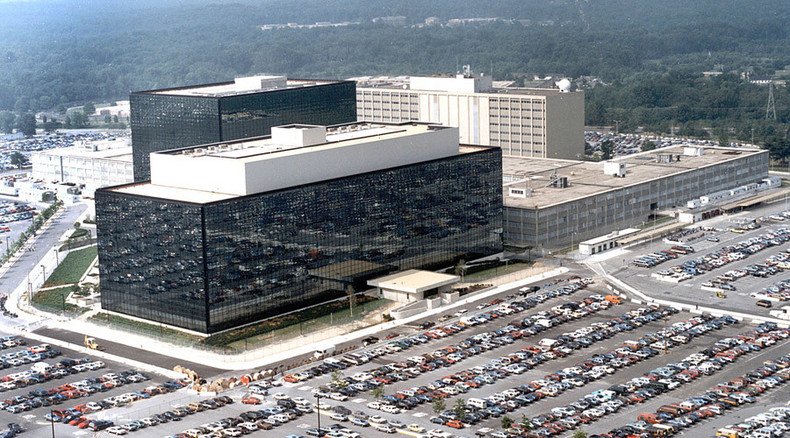‘Turning a blind eye’: Court sides with government on NSA surveillance, dismisses ACLU challenge

A federal district court judge in Virginia has dismissing a lawsuit filed by the American Civil Liberties Union that challenged the National Security Agency’s mass interception and surveillance of Americans’ communications.
Siding with the government, the judge ruled Friday that the nine plaintiffs in the case had not plausibly alleged that their communications were being monitored by the NSA.
“Plaintiff’s standing argument boils down to suppositions about how Upstream surveillance must operate in order to achieve the government’s stated goals,” wrote US District Judge T. S. Ellis in his ruling. “In a case like this, plaintiffs necessarily rely on probabilities and speculation because most facts about Upstream surveillance remain classified, and hence plaintiffs see through a glass darkly.”
Federal judge dismisses Wikimedia suit against NSA, saying: If you don't like NSA spying, get Congress to change it pic.twitter.com/5Y3YKLvr6z
— Christopher Soghoian (@csoghoian) October 23, 2015The plaintiffs, which included Amnesty International, Wikimedia Foundation, Pen American Center and the National Association of Criminal Defense Lawyers (NACDL), among others, argued the NSA’s use of “upstream” surveillance enabled the government “to collect communications as they transit the internet ‘backbone.’” This has allowed the government to copy and review text-based communication such as emails, search-engine queries and webpages, as well as engage in “about surveillance” allowing the agency to search communications that are about its targets.
The complaint cited two cases where clients of NACDL had been prosecuted based on Section 702 of the FISA Amendments Act, which has been used by the NSA to justify its mass collection of data from the infrastructure of communications companies.
The plaintiffs also argued that knowing about government surveillance created an undue burden on the organizations, since they had to minimize the risk of surveillance by limiting the sharing of sensitive information.
“The subjective fears of third parties and any alleged burdensome measure taken as a result of subjective fear of surveillance are not fairly traceable to Upstream surveillance, and therefore do not establish…standing,” Judge Ellis wrote.
Brick by Brick the #Constitution is Dismantled: #ACLU lawsuit against #NSA mass surveillance dropped by fed court https://t.co/NlDGBKmatQ
— F D Millet (@FrancisDMillet) October 24, 2015The ACLU said that all nine of the plaintiffs in the suit allege that the NSA used Upstream surveillance to copy their communications and search them for potentially terrorist-related foreign intelligence information, and that this violated the First and Fourth Amendments of the Constitution and exceeded the government’s authority under Section 702.
“The court has wrongly insulated the NSA’s spying from meaningful judicial scrutiny,” Patrick Toomey, ACLU National Security Project staff attorney, argued in the case. “The decision turns a blind eye to the fact that the government is tapping into the internet … to spy on millions of Americans. The dismissal … is at odds with an overwhelming public record of warrantless surveillance.”
The judge said the method of surveillance under Upstream constitutes 9 percent of total internet communications acquired by the NSA under Section 702. He noted that under the agency’s “PRISM” program, it gathered more than 250 million communications a year, as of 2011. In 2014, the government targeted the communications of more than 92,000 individuals, groups, and organizations under a single Foreign Intelligence Surveillance Court order.
NSA pledges to eventually delete old bulk surveillance records http://t.co/Gf95ToYBtbpic.twitter.com/hmOVuxwm5c
— RT America (@RT_America) July 28, 2015“The NSA’s mass surveillance violates our clients’ constitutional rights to privacy, freedom of speech, and freedom of association, and it poses a grave threat to a free internet and a free society,” Ashley Gorski, staff attorney at the ACLU, said in a press statement. “The private communications of innocent people don’t belong in government hands.”
LISTEN MORE:












